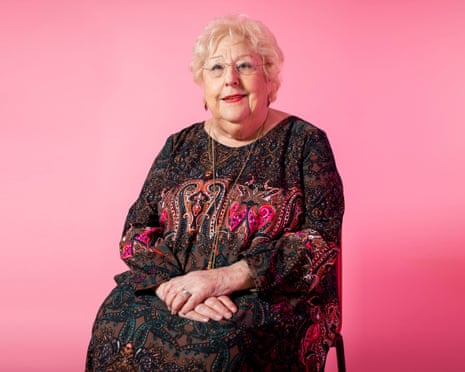The passing of Sylvia Young, at 85, marks the end of an era for British performing arts, whose pioneering theatre school became the incubator for an astonishing array of talent that shaped contemporary entertainment. Her profound influence extended across music, television, and the stage, nurturing the raw potential of countless young hopefuls into industry icons. Young’s unique vision fostered an environment where confidence and skill blossomed, leaving an indelible mark on generations of artists.
Established in 1981 in central London, the Sylvia Young Theatre School quickly rose to prominence as a launchpad for future stars. Within its inaugural decade, the institution played a pivotal role in populating the newly launched BBC soap opera EastEnders with foundational talents like Adam Woodyatt and Letitia Dean, while also placing young performers directly into coveted roles on the West End stage, including Denise van Outen. This immediate success underscored Young’s unparalleled ability to identify and develop nascent talent.
A testament to the school’s rigorous training and Young’s discerning eye came in 1994, when a nationwide audition for a major West End revival of Oliver! found the majority of its juvenile leads and many ensemble members among Young’s “babies,” as she affectionately called her students. While the school boasted diverse pupils, including male actors and musicians such as Matt Willis, Young frequently remarked on her success in producing “girls with bottle,” emphasizing the confidence and resilience instilled in her female students, a reflection of her own tough upbringing.
The Sylvia Young Theatre School differentiated itself by offering full-time courses for students aged 10 to 16, balancing comprehensive performing arts training with a robust academic education. Young was committed to proving that stage school was not detrimental to general schooling. The curriculum ingeniously integrated standard lessons from Monday to Wednesday, dedicating Thursday and Friday exclusively to intensive performing arts studies, a schedule that fostered both intellectual growth and artistic mastery.
From a modest beginning with 27 pupils, the institution expanded significantly, accommodating over 200 students and a dedicated staff of 20. Beyond the core curriculum, the school also established Saturday and summer classes, alongside two affiliated agencies – Young ’Uns and Rossmore Management – to actively seek professional opportunities for its burgeoning stars. This holistic support system underscored Young’s commitment to her students’ long-term careers.
A cornerstone of Young’s philosophy was accessibility, ensuring that the school was not exclusively for the wealthy, achieved through scholarships and bursaries. She passionately advocated for a broad skillset, encouraging students to master singing, dancing, and acting, while also promoting awareness of related industry roles, from casting agents to camera operators. This expansive view prepared students for diverse pathways within the dynamic entertainment landscape.
The school’s alumni roll call reads like a who’s who of British entertainment, featuring an impressive array of singers and actors who achieved household fame. From pop sensations like Amy Winehouse and Rita Ora to acclaimed actors such as Keeley Hawes and Billie Piper, and even supermodel Naomi Campbell, the breadth of talent nurtured by Young is extraordinary. Her legacy is profoundly etched into the fabric of British show business, a testament to her unwavering dedication to developing confident and multifaceted performers.
Born Sylvia Bakal in Whitechapel, East London, Young’s own life experiences, including an evacuation during WWII and a childhood spent reading plays in libraries, fueled her passion for the arts. Her journey from staging a primary school fundraiser to establishing a full-fledged theatre school in 1981, eventually moving to Marylebone and then Marble Arch, reflects a lifelong dedication. Even expelling her own daughter, Frances Ruffelle, for bad behavior underscored her commitment to discipline and the school’s high standards, further solidifying her reputation as a formidable figure in performing arts education.
Sylvia Young’s impact transcends individual careers; she built an institution that became synonymous with excellence in performing arts education. Her pioneering spirit, commitment to nurturing talent, and holistic approach to student development transformed the landscape of British show business. The countless success stories emerging from her school stand as an enduring tribute to a woman who not only trained stars but also instilled the confidence and resilience that defines true artistic professionalism.





Leave a Reply